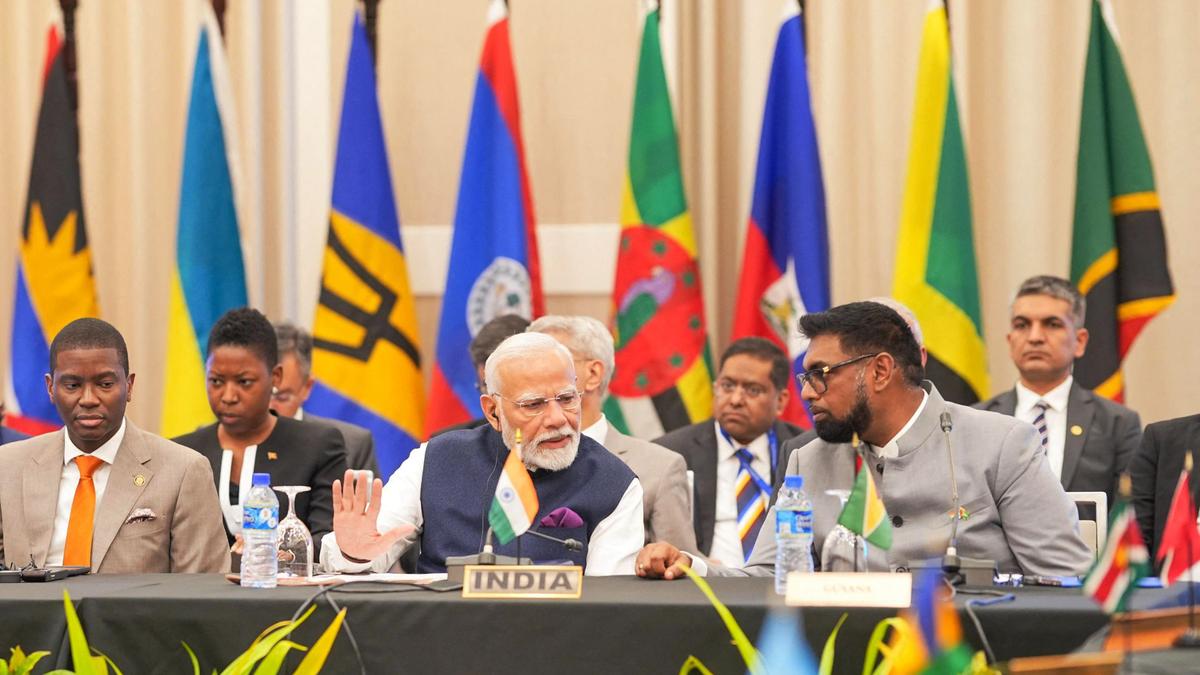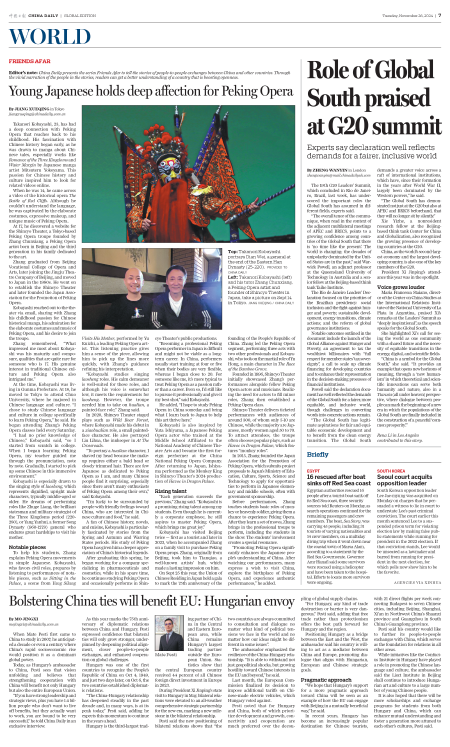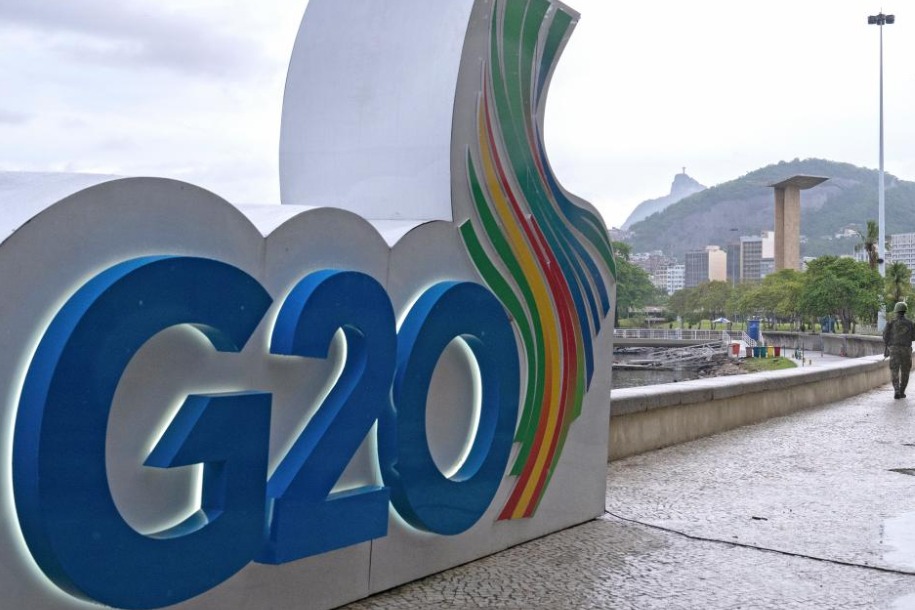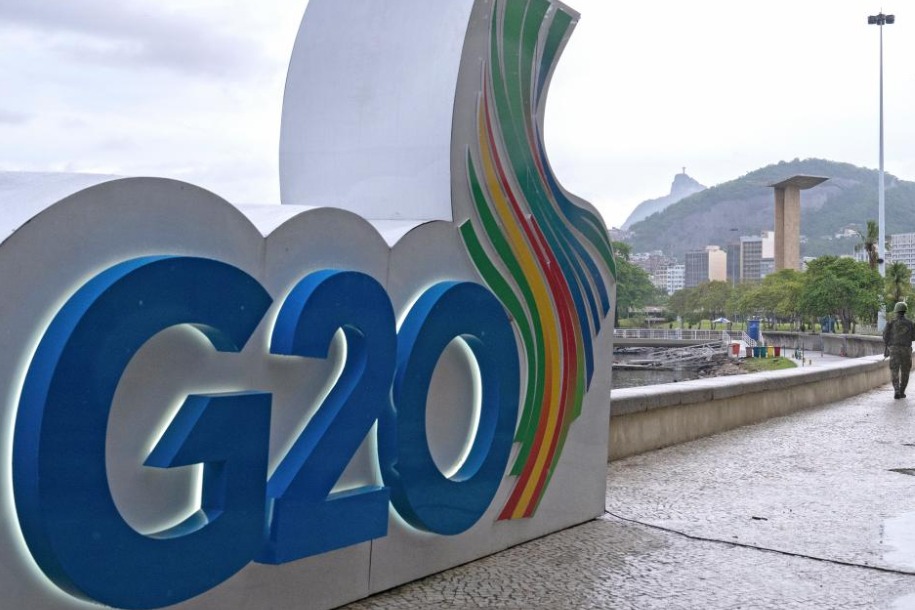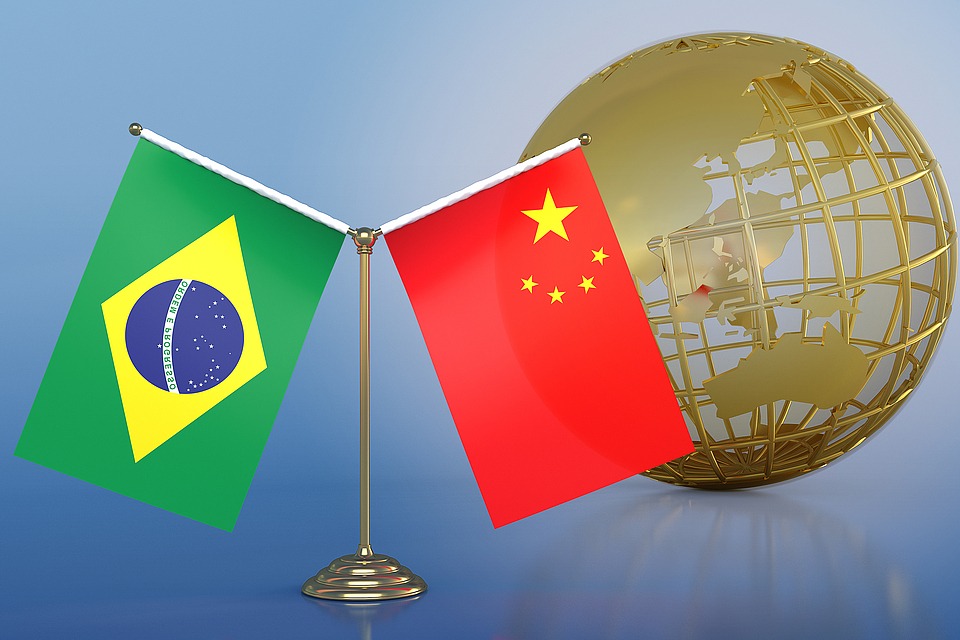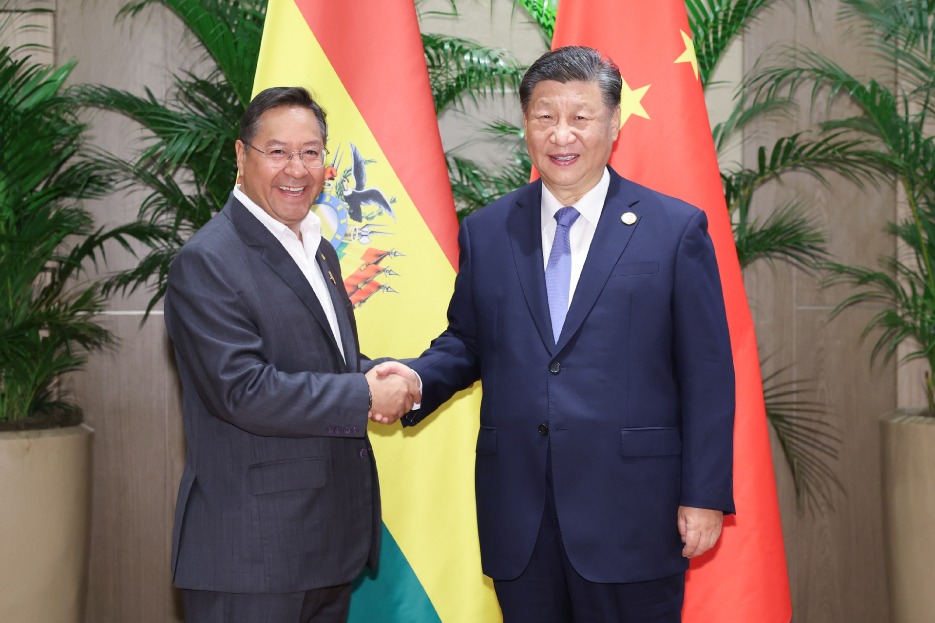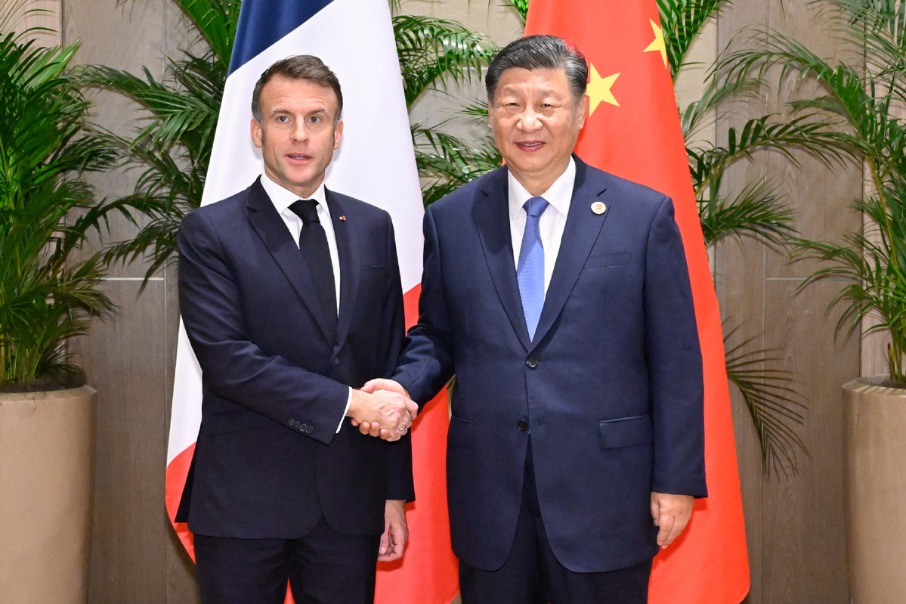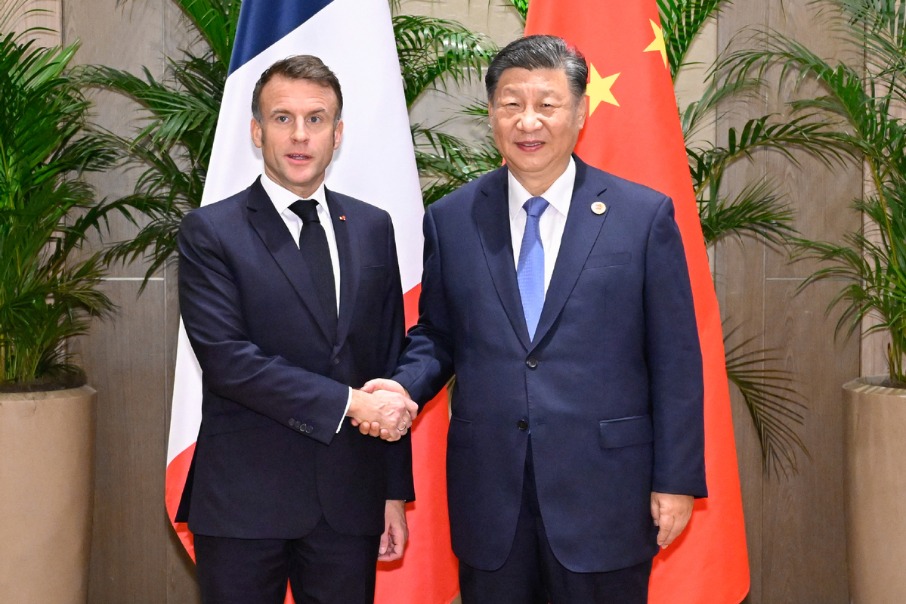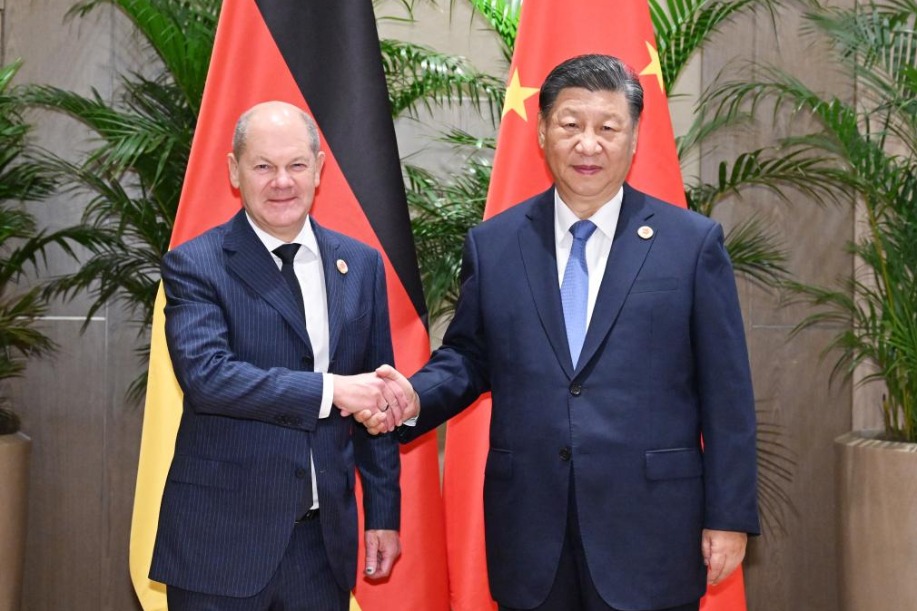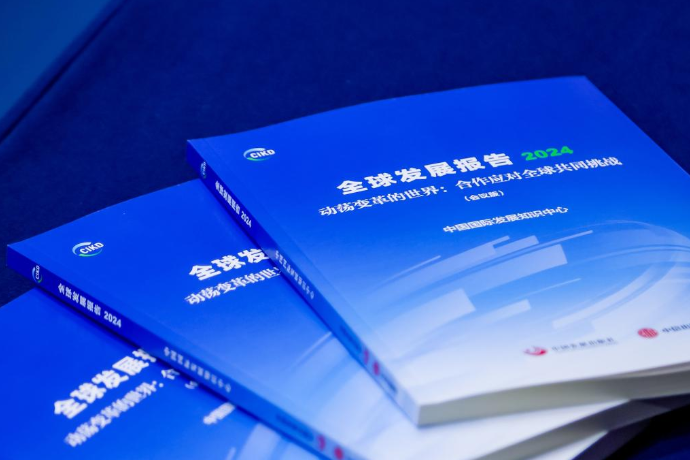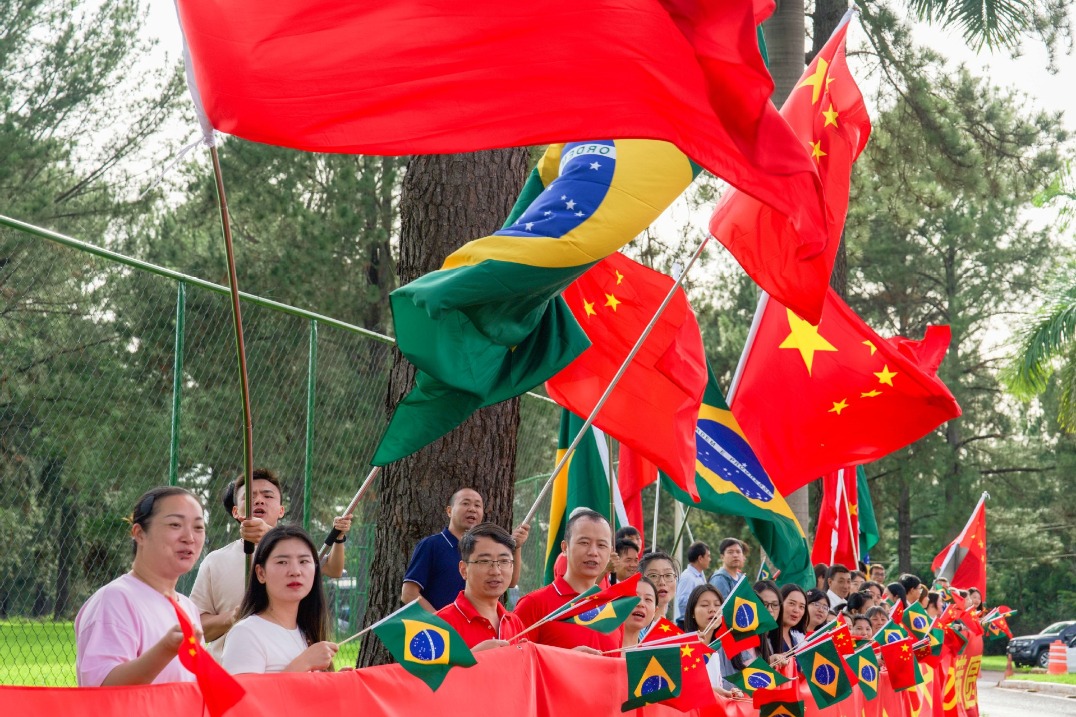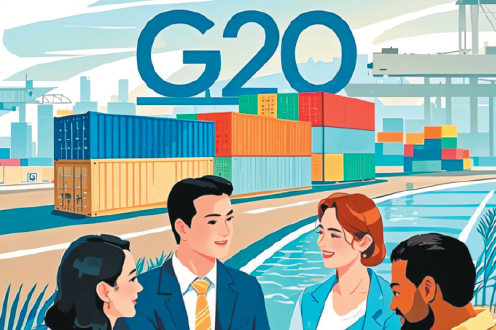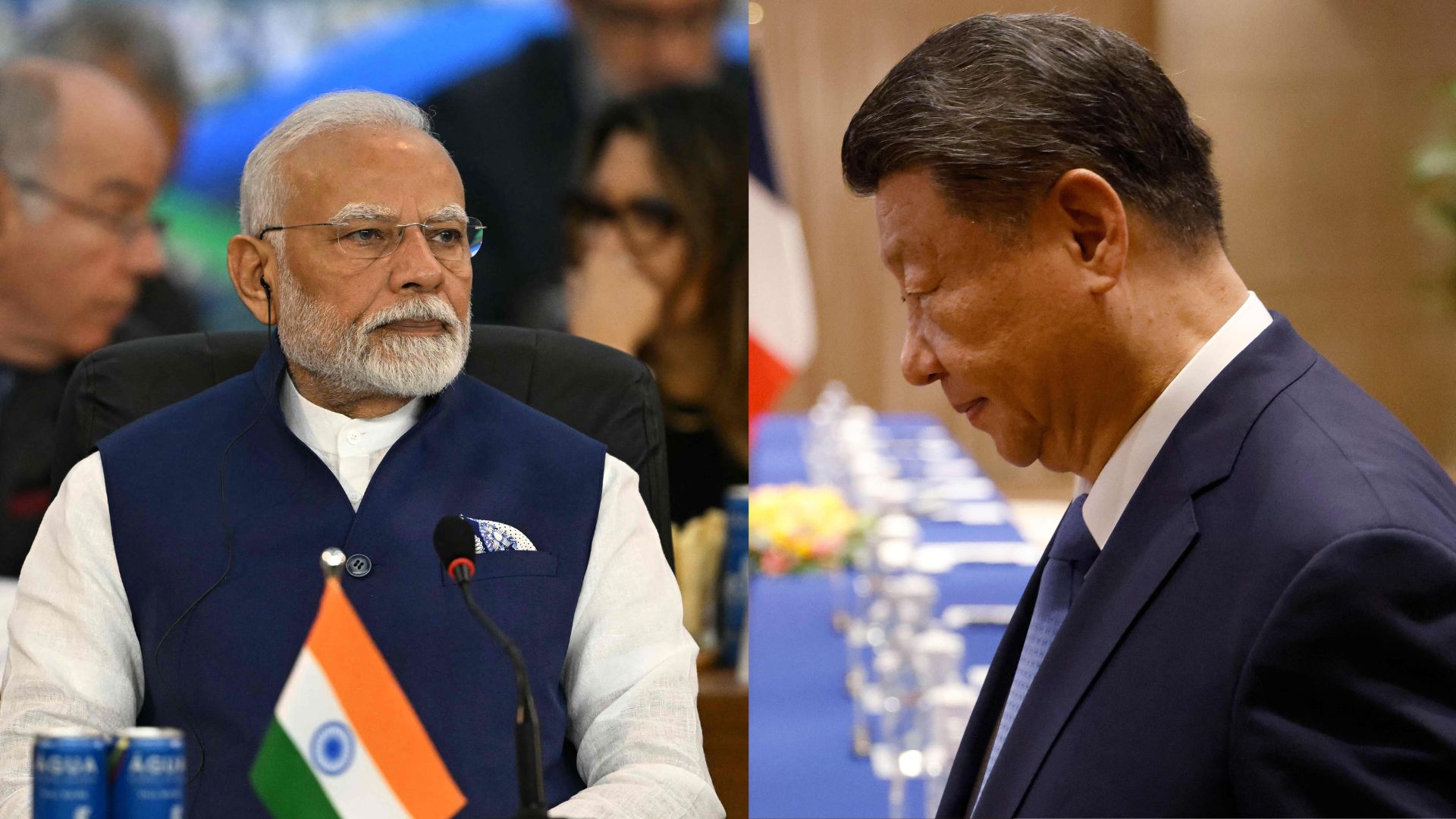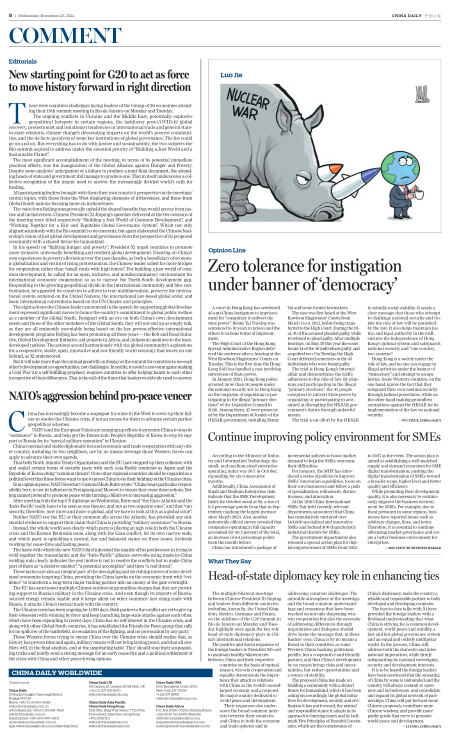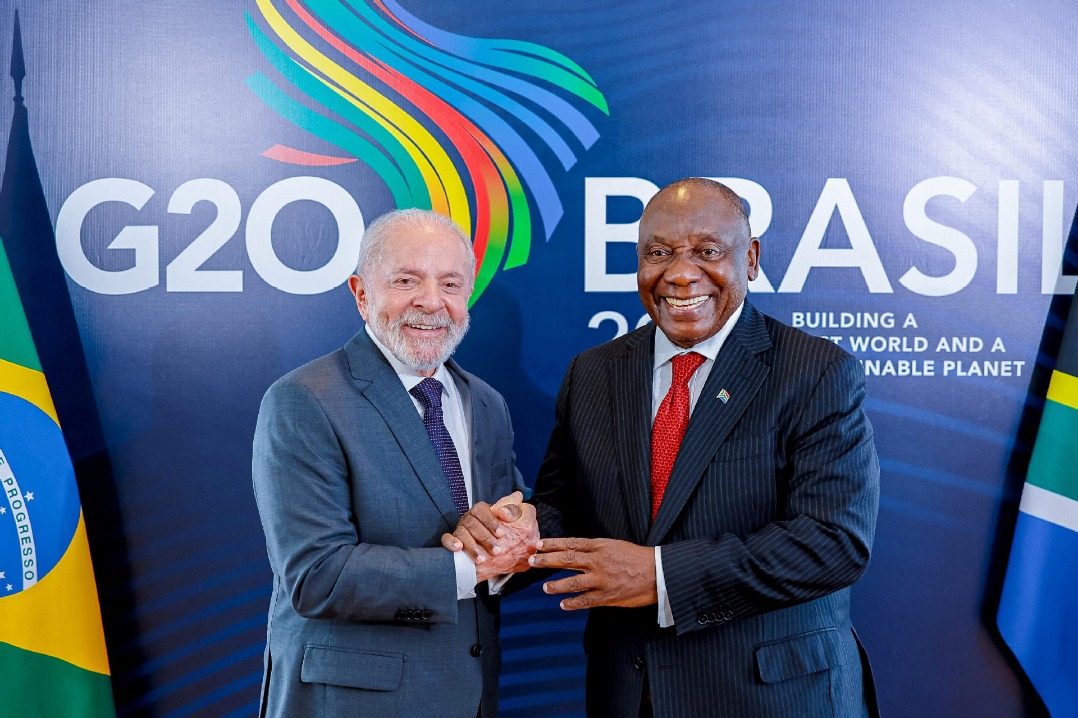
G20 should help address common global challenges
China DailyBrazil's President Luiz Inacio Lula da Silva greets South African President Cyril Ramaphosa as he arrives ahead of the G20 Summit, in Rio de Janeiro, Brazil, November 17, 2024. The EU recently joined the fray by imposing tariffs of up to 45.3 percent on Chinese-made electric vehicles, raising tensions between the two major economies and threatening to destabilize international trade and stall global economic growth. The WTO's latest report highlights how global trends — geopolitical competition, regional conflicts and trade sanctions — have eroded the stable foundation of world economic growth over the past 30 years, leading to the fragmentation of the global trade system. Punitive tariffs imposed by the US on Chinese products have disrupted the normal flow of trade, investment and technologies, resulting in severe misallocation of resources and damaging global value and supply chains. This prompted more than 40 countries to impose retaliatory tariffs on US goods, igniting a global trade war that reduced the world trade volume by 66 percent and global industrial output by 33 percent in 1934, bringing the global economy to the brink of collapse.
History of this topic
The G20 has ‘shock absorbers’ to deal with Trump’s return as US president, South Africa says
Associated Press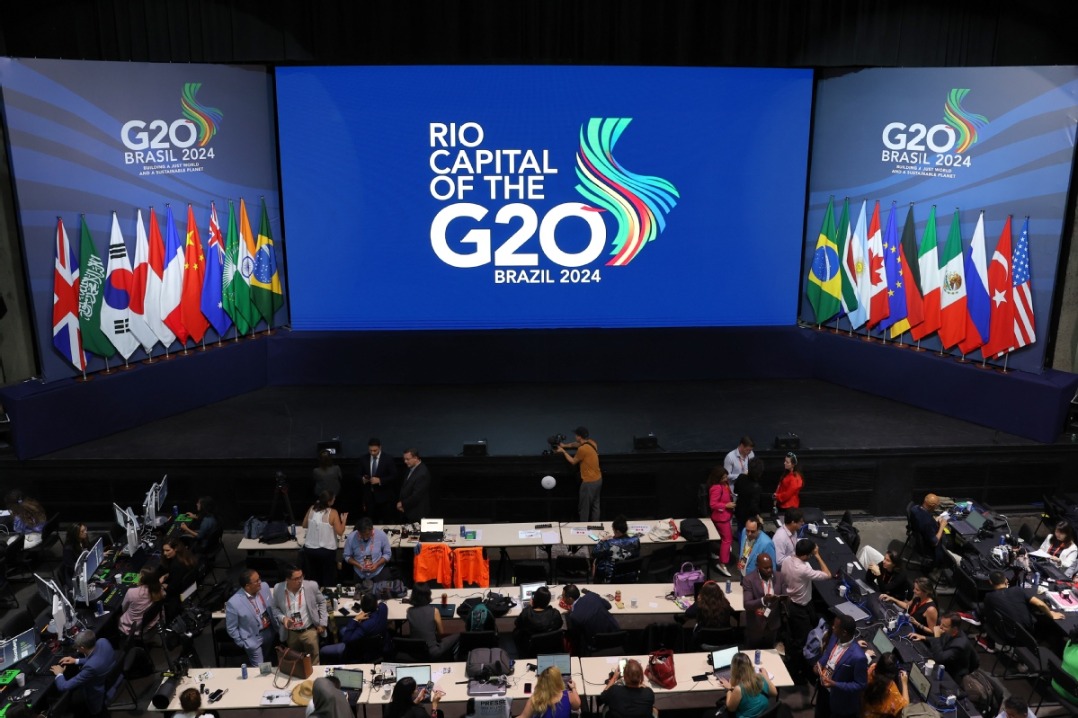
G20 Summit marks new era of global collaboration, inclusivity
China Daily
Role of Global South praised at G20 summit
China Daily
Do we still need the G20?
China Daily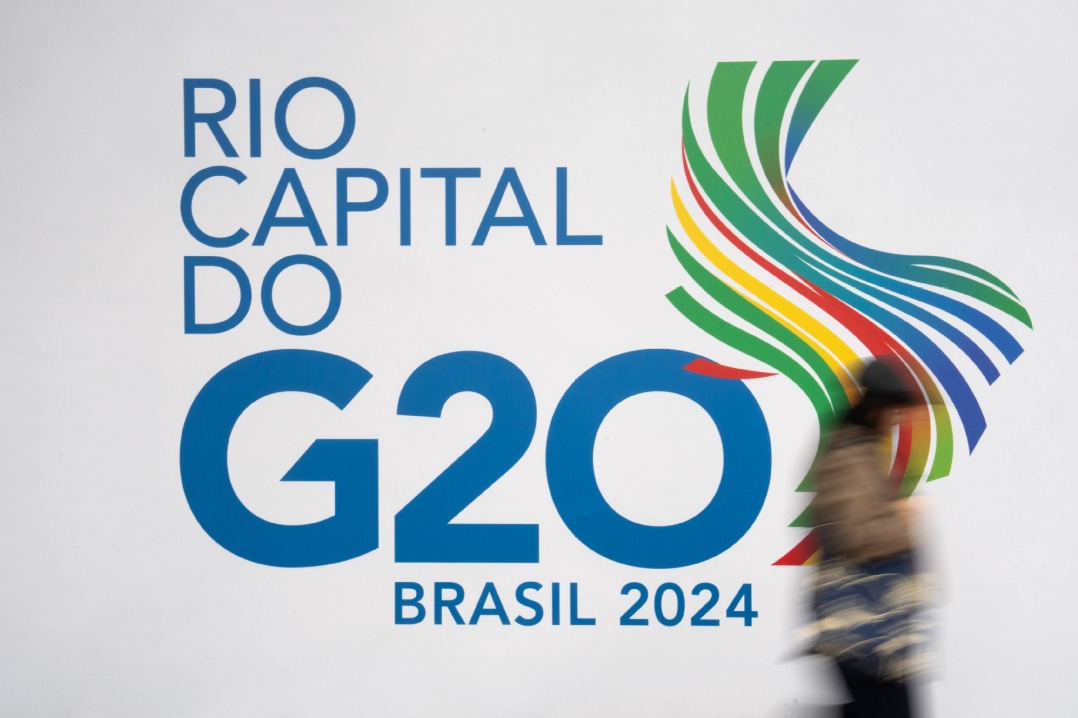
Role of Global South praised at G20 summit
China Daily
Role of Global South praised at G20 summit
China Daily
Role of Global South praised at G20 summit
China Daily
Task laid out after Rio
China Daily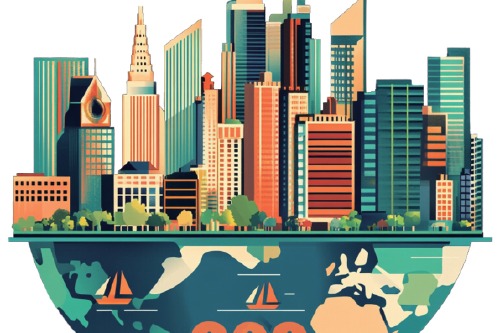
At risk of irrelevancy
China Daily
Claim it in Rio
China Daily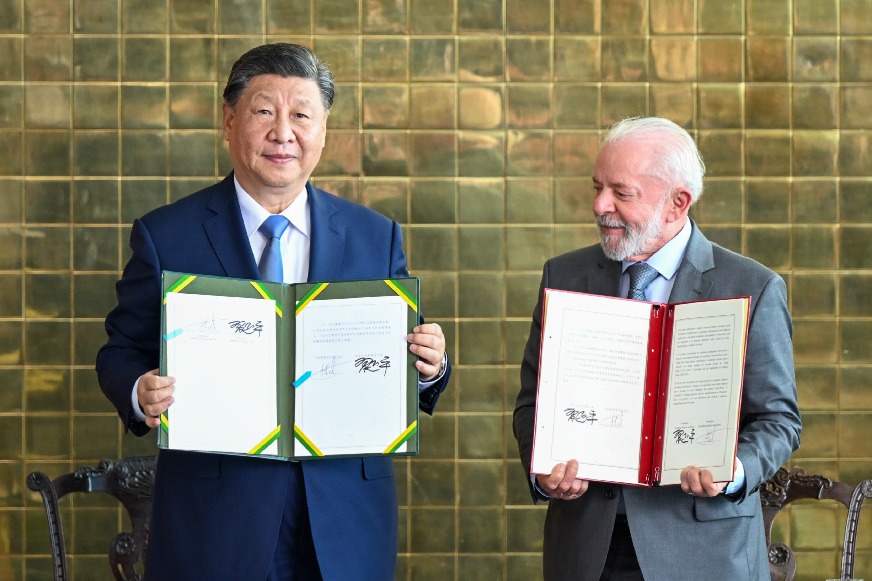
China, Brazil elevate ties to forge shared future
China Daily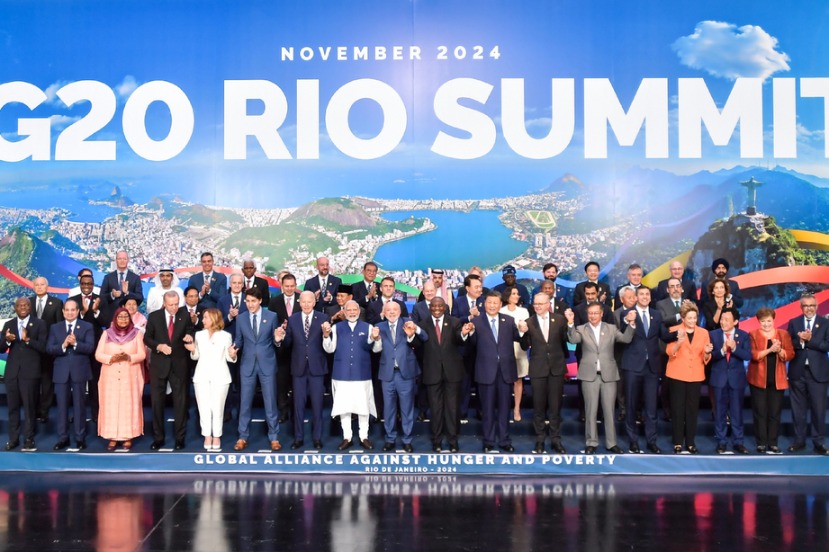
China's inclusive approach recognized
China Daily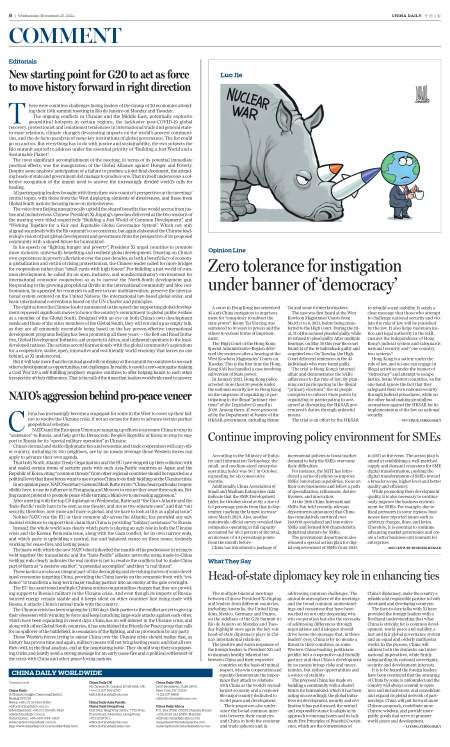
New starting point for G20 to act as force to move history forward in right direction
China Daily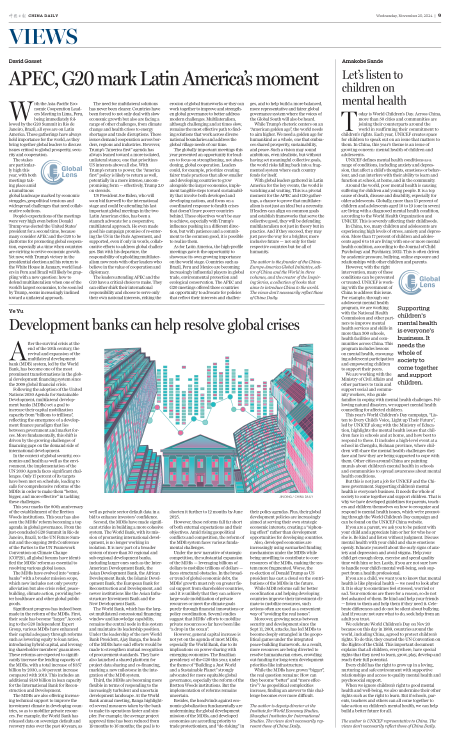
APEC, G20 mark Latin America's moment
China Daily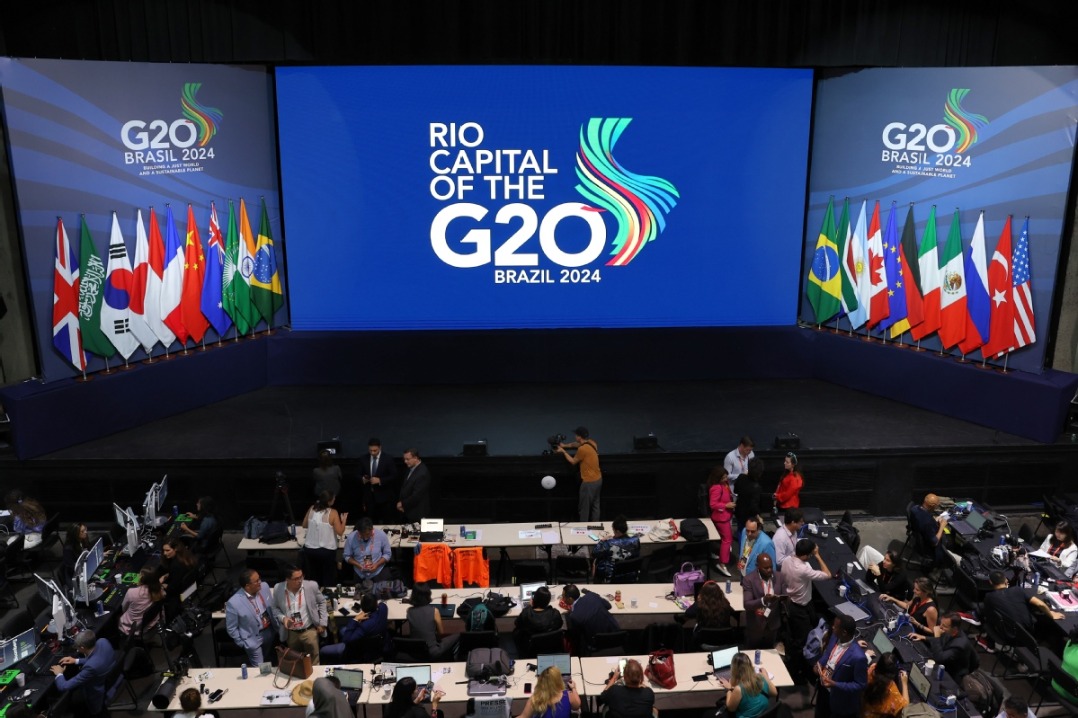
APEC, G20 mark Latin America's moment
China Daily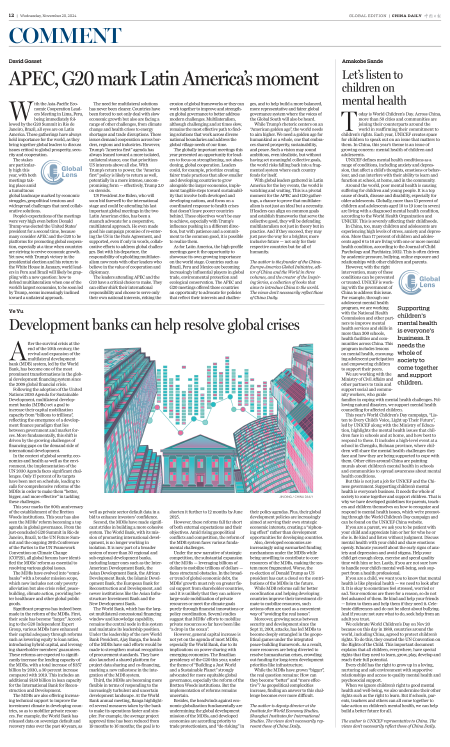
APEC, G20 mark Latin America's moment
China Daily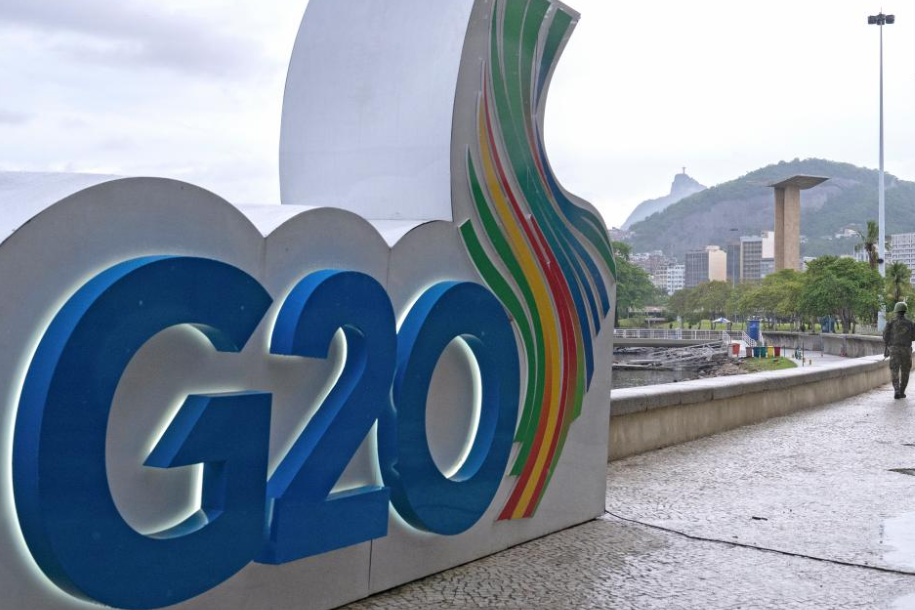
Head-of-state diplomacy key role in enhancing ties
China Daily
APEC, G20 mark Latin America's moment
China Daily
China's inclusive approach recognized
China Daily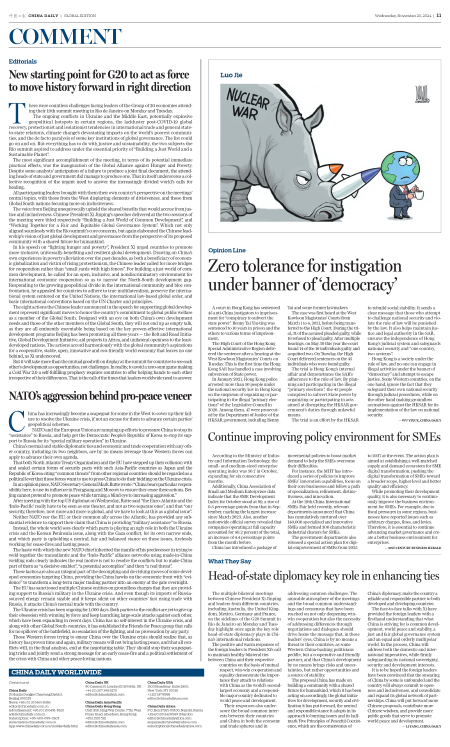
New starting point for G20 to act as force to move history forward in right direction
China Daily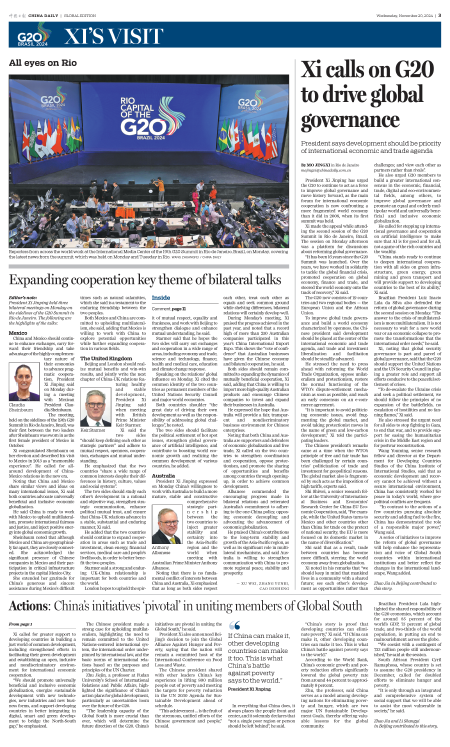
Xi calls on G20 to drive global governance
China Daily
China's inclusive approach recognized
China Daily
APEC, G20 mark Latin America's moment
China Daily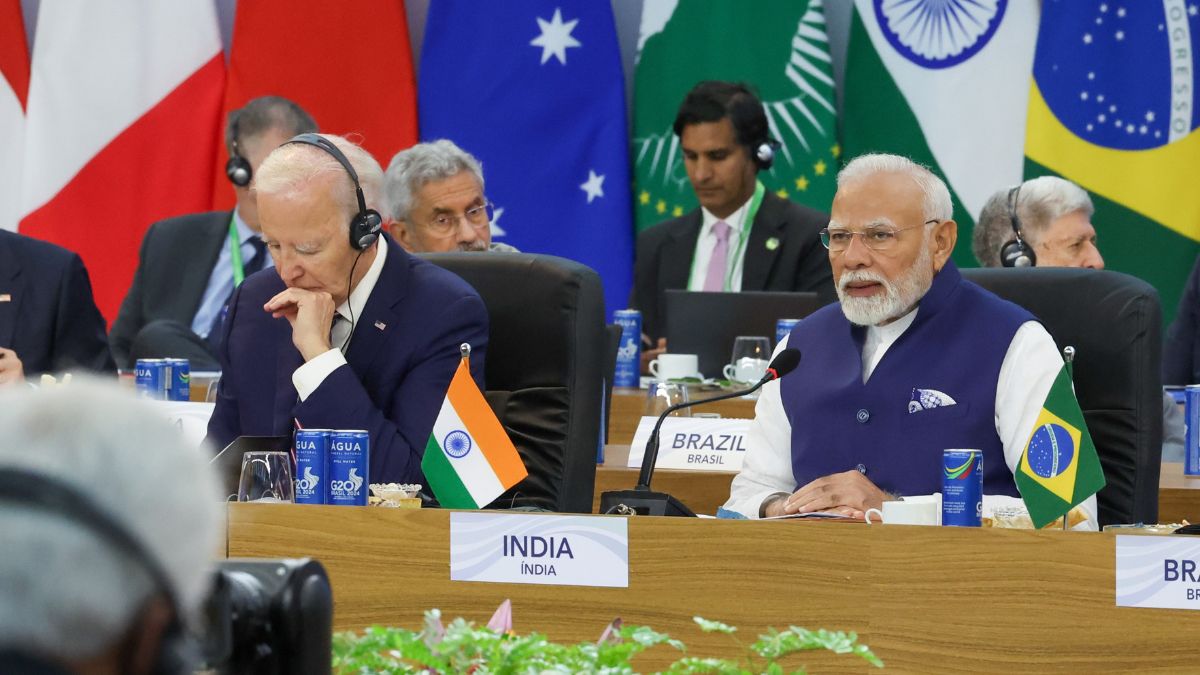
G20 Summit spotlight: PM Modi unveils India's bold vision for sustainable development | READ
India TV News
G20: India, France review bilateral cooperation; Modi meets Norway, Portugal counterparts
Hindustan Times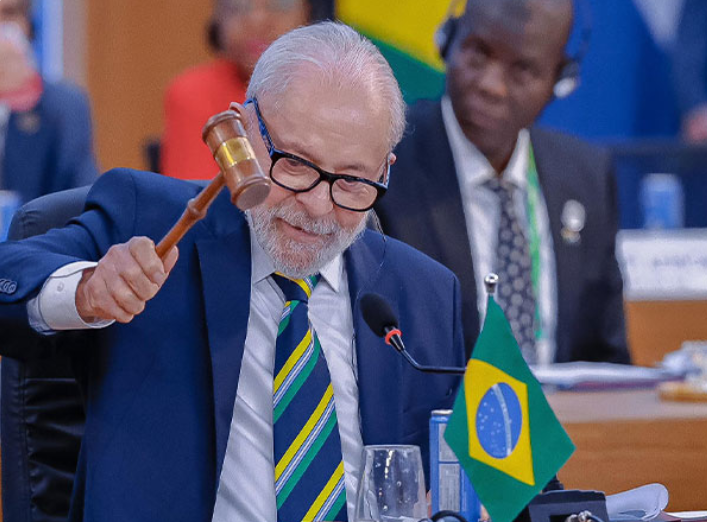
G20 Brazil declaration prioritises fight against hunger, poverty
Deccan Chronicle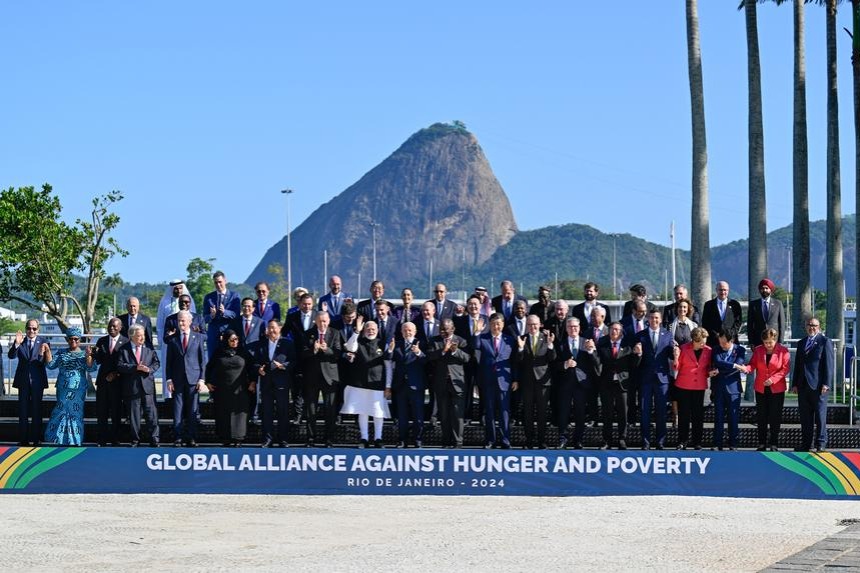
Xi unveils China's action plan as G20 tackles hunger, economic challenges
China Daily
Hope G20 members join hands to build a better future
China Daily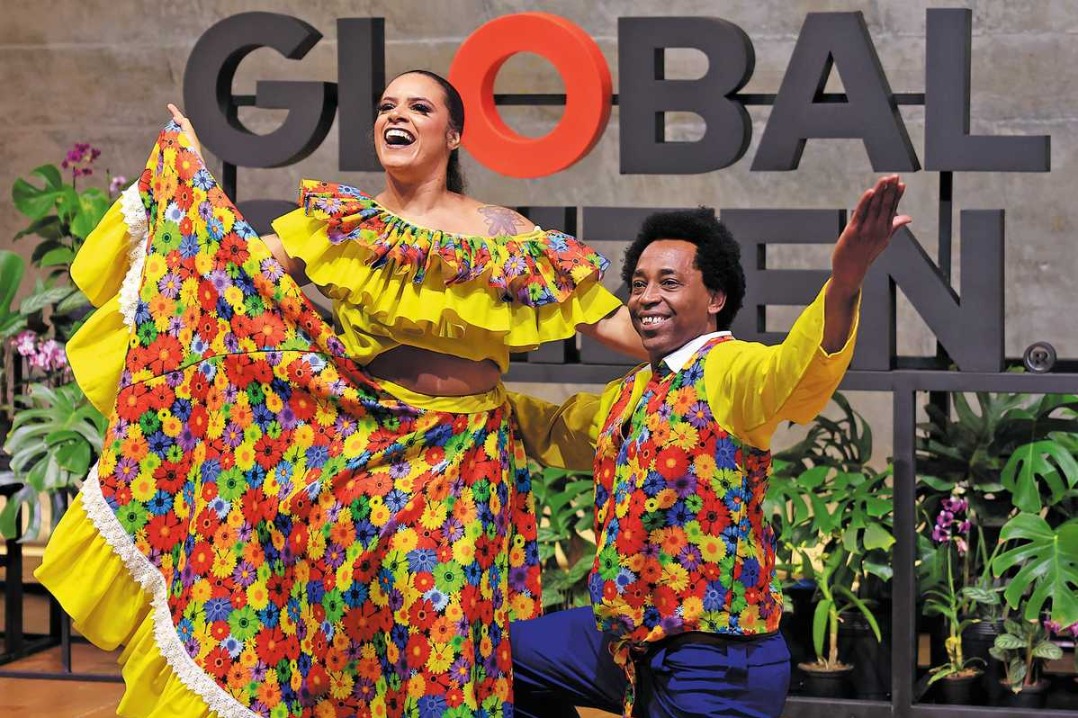
South Africa expects G20 to facilitate cooperation
China Daily
Hope G20 members join hands to build a better future
China Daily
How does the G20 enforce its policies?
Al Jazeera
Hope G20 members join hands to build a better future
China Daily
South Africa expects G20 to facilitate cooperation
China Daily
Xi unveils China's action plan as G20 tackles hunger, economic challenges
China Daily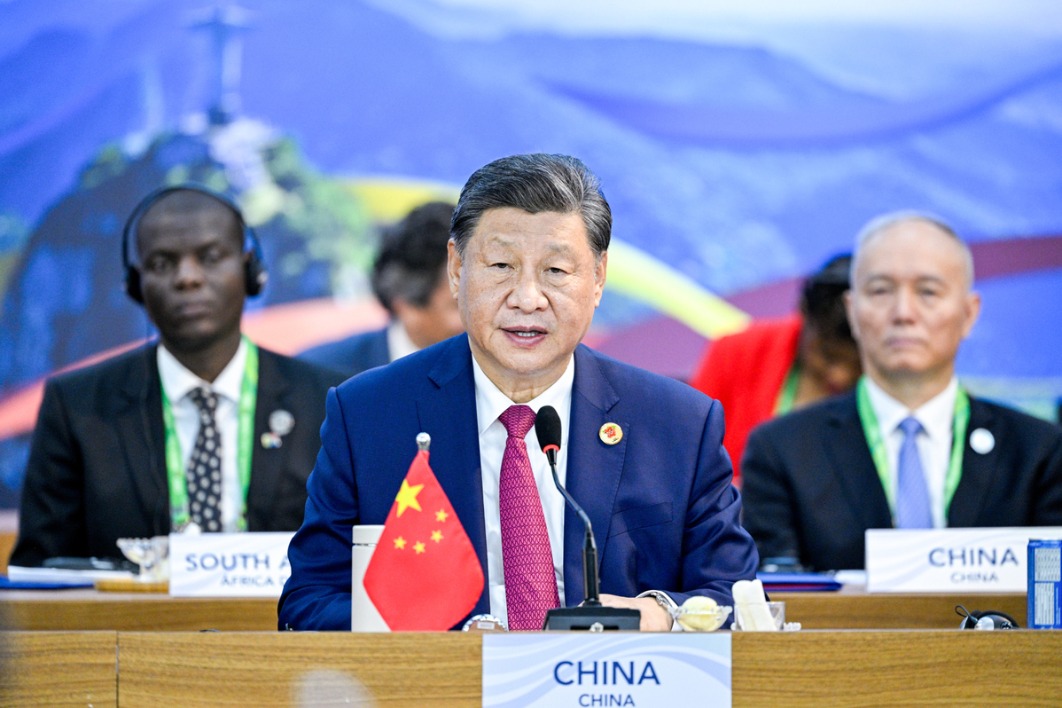
At G20 summit, Xi urges a fair, equitable global governance system
China Daily
Hope G20 members join hands to build a better future
China Daily
South Africa expects G20 to facilitate cooperation
China Daily
Trade, climate take centre stage as PM arrives for G20
Hindustan Times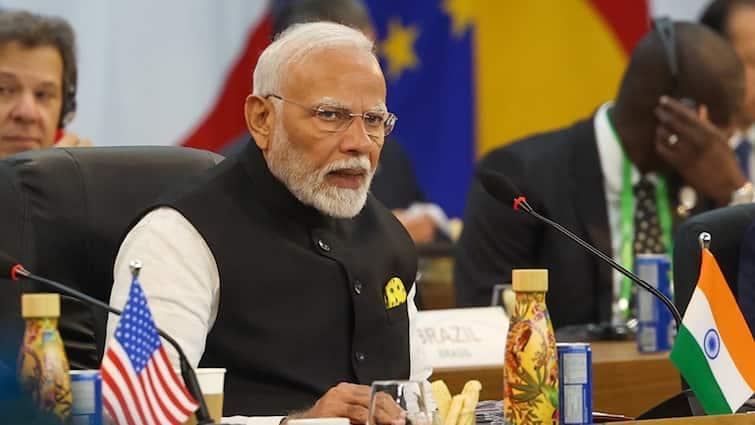
G20 Summit 2024: PM Modi Highlights India’s Reforms, Backs Brazil’s ‘Global Alliance Against Hunger And Poverty’
ABP News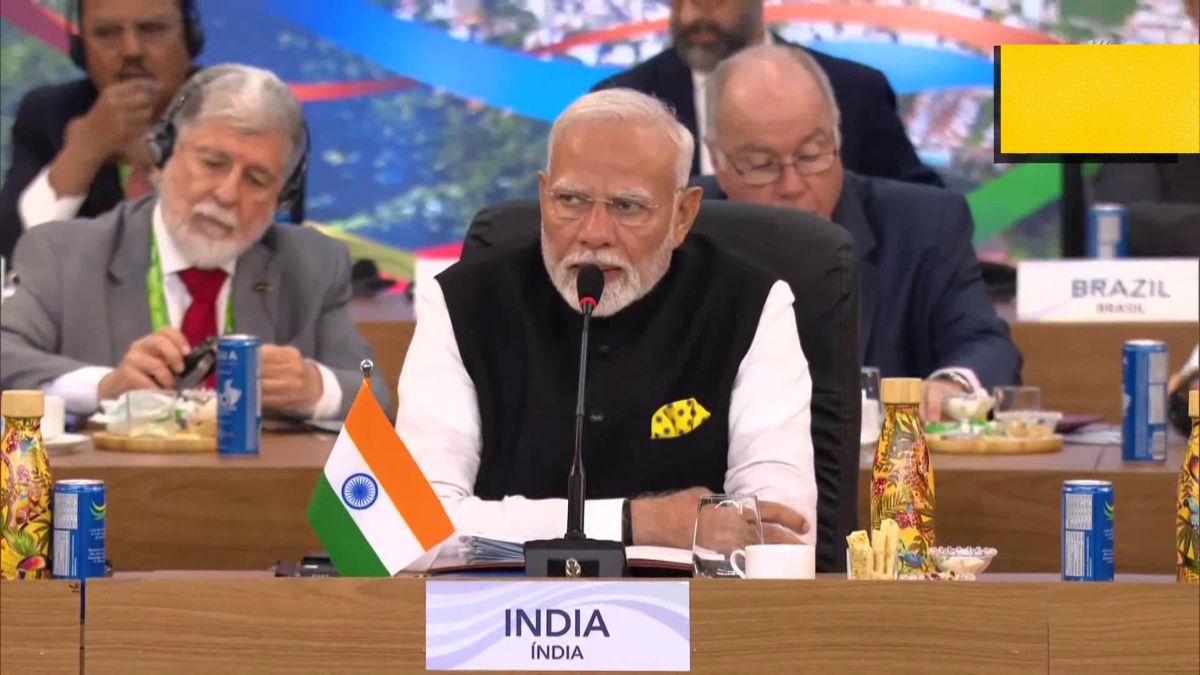
G20 Summit: PM Modi stresses need to centre Global South in talks amid conflict-driven food, fuel crises
India TV News)
As Brazil hosts G20 leaders, 3 things about the group and Rio summit
Firstpost)
G20 Brazil Summit: Is G7 finally making way for emerging economies?
Firstpost
G20 summit confronts a global order unsettled by Trump's return
Hindustan Times)
Rio turns into fortress for G20 summit: 25,000 soldiers, cops deployed, thousands security cameras installed
Firstpost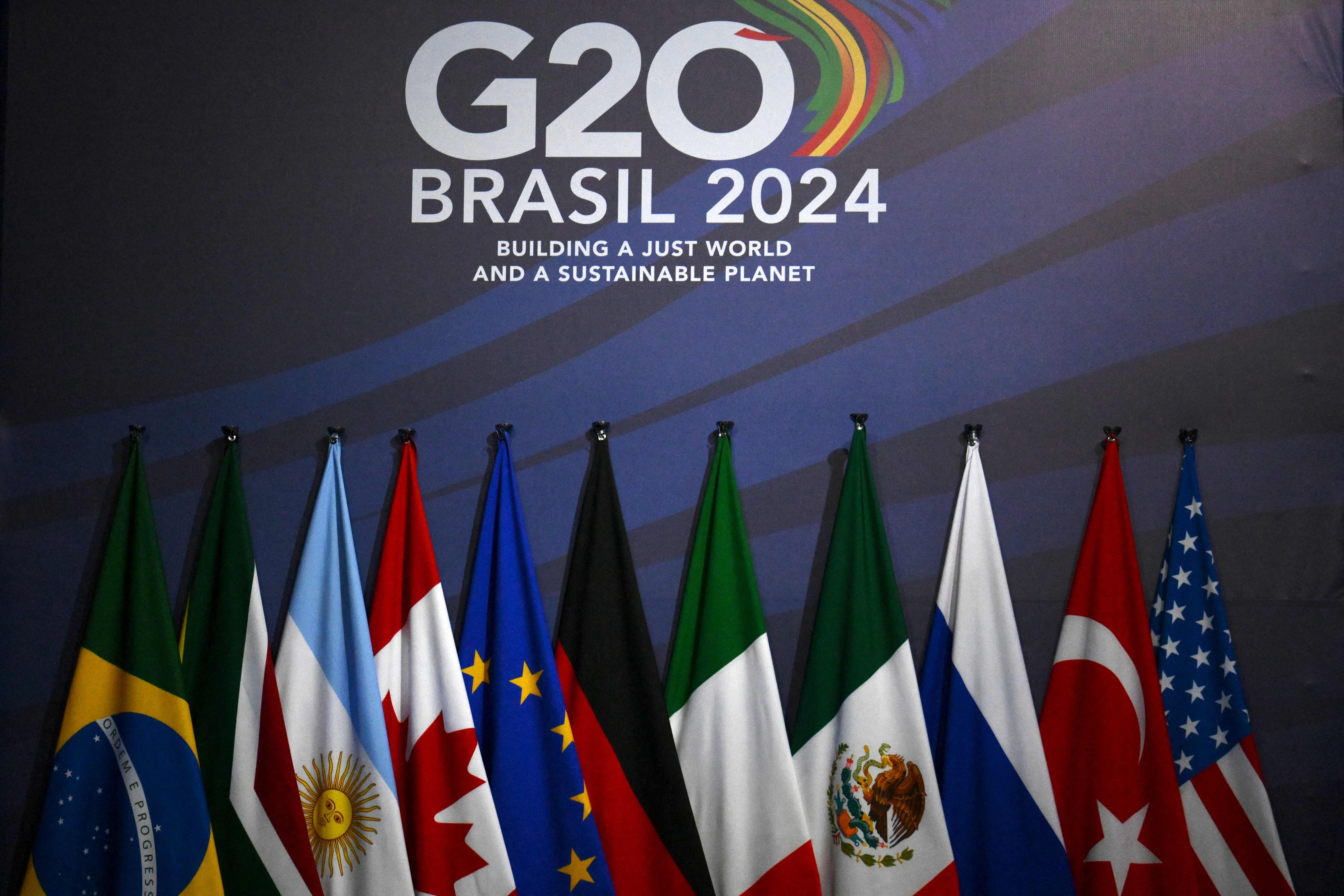
G20 leaders to grapple with climate, taxes, Trump comeback
Deccan Chronicle)
G20 in Brazil: Why is it crucial in today's changing geopolitics?
Firstpost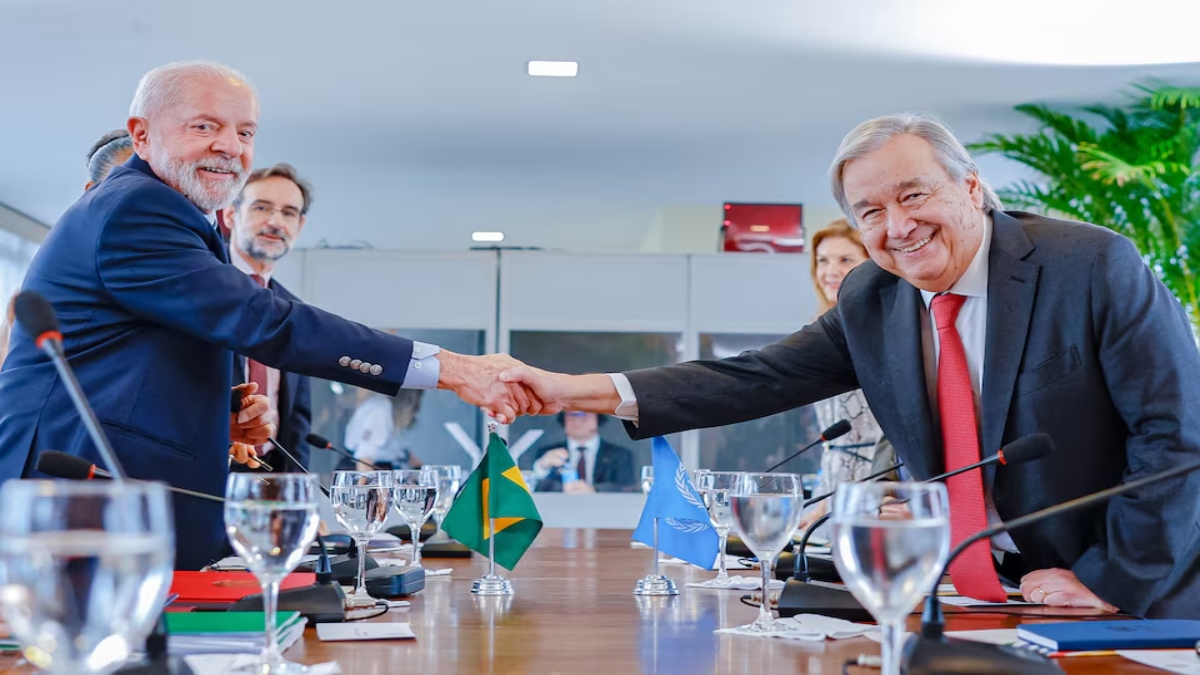)
G20 summit begins in Brazil today as UN urges it to do what COP29 may not in Azerbaijan
Firstpost
Xi calls for multi-polar world, inclusive globalization ahead of G20 Summit
China Daily
G20 should help address common global challenges
China DailyDiscover Related



